US Sanctions Network Supporting Iran's Drone, Military Programs
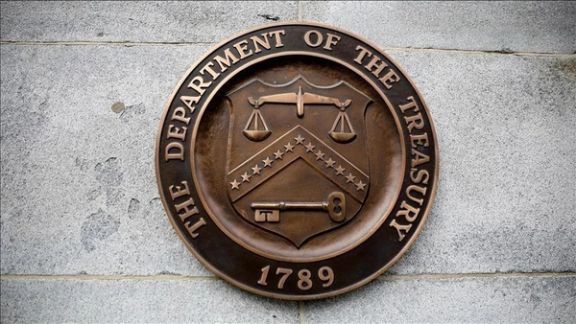
The United States Wednesday imposed sanctions on a network it accused of supporting Iran's drone and military programs, aimed at increasing pressure on Tehran.

The United States Wednesday imposed sanctions on a network it accused of supporting Iran's drone and military programs, aimed at increasing pressure on Tehran.
The US Treasury Department in a statement said it imposed sanctions on the head of Iran’s Pardazan System Namad Arman (PASNA), which was already under US sanctions, and the entity's front companies and suppliers in Iran, Malaysia, Hong Kong and China that Washington said have enabled PASNA's procurement of goods and technology.
It marks the latest move by Washington targeting Iran's unmanned aerial vehicle (UAV) industry.
"The network sanctioned today has procured goods and technology for the Iranian government and its defense industry and UAV program," the Treasury's Under Secretary for Terrorism and Financial Intelligence, Brian Nelson, said in the statement.
"Treasury will continue to enforce its sanctions against Iran’s military procurement efforts that contribute to regional insecurity and global instability."
The Treasury targeted the managing director of PASNA, accusing him of being responsible for the company's sanctions evasion efforts. It said he used front companies to seek a variety of electronic components from suppliers based primarily in China.
Three China-based suppliers of PASNA were also targeted in Wednesday's action alongside a Hong Kong-based company, a Malaysia-based front company and one based in Iran.
The latest US move against Iran comes as efforts to revive the 2015 nuclear deal have stalled and ties between Tehran and the West became increasingly strained as Iran's security forces violently put down the protests following the death of a Kurdish woman in the custody of the morality police last September.
Wednesday's sanctions followed charges filed a day earlier or another network financing Iran-backed Hezbollah.
Reporting by Reuters
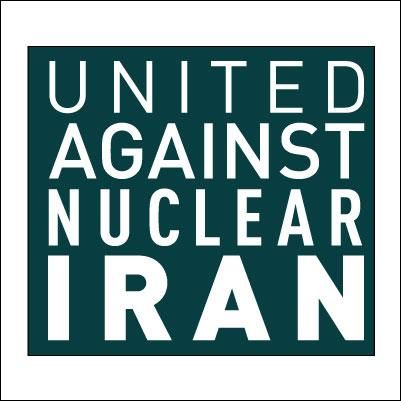
Five American universities are working with Iranian bodies sanctioned by the US and the EU, according to watchdog United Against a Nuclear Iran (UANI).
The nonprofit organization dedicated to monitoring threats from the Islamic Republic wrote to Virginia Tech University, University of Washington, Worcester Polytechnic Institute, Clarkson University, and the University of Louisiana at Lafayette in December.
UANI claimed employees and students at these institutions worked on technical research with Iranian entities sanctioned by Western governments, reported Washington Examiner on Monday.
UANI reviewed academic journals featuring papers co-authored by students, researchers, or faculty members along with staff from the Iranian Aerospace Research Institute, the Iranian University of Science and Technology, and Sharif University of Technology.
UL Lafayette, Virginia Tech, Worcester Polytechnic, and Clarkson University all told the Washington Examiner their actions were legal and did not sidestep any federal sanctions. However, Clarkson University and the University of Washington said they were investigating the matter.
UANI Research Director Daniel Roth told the Washington Examiner that the appearance of cooperation between the schools and Iranian institutions was a "big red flag."
While Roth acknowledged that working with sanctioned Iranian institutions might be illegal, he also recognized that the universities might have a valid explanation.
The sanctions on Iranian Universities are part of an effort to pressure the Iranian regime to end its nuclear weapons program and other activities that are seen as a threat to global security.

US prosecutors Tuesday charged a businessman with evading US sanctions imposed on him for financing the Lebanese Hezbollah through illegal dealings.
Nazem Said Ahmad was designated in December 2019 for “blood diamonds” and art trade benefitting Hezbollah and is now charged with continuing his activities and violating the sanctions on him. The sanctions were intended to cut off access for Ahmad and 11 businesses associated with him to the US financial system.
The US Treasury Department also unveiled sanctions on what it said was a vast international money laundering and sanctions evasion network, targeting 52 people and entities in Hong Kong, the United Arab Emirates and elsewhere over the payment and shipment of cash, diamonds, precious gems, art and luxury goods for the benefit of Ahmad.
US sanctions and designations against Iranian entities and individuals, as well as Hezbollah affiliated elements, has picked up speed since mid-2022.
Federal prosecutors in Brooklyn said Ahmad worked with three family members and five other associates to continue dealing in diamonds and artwork, while concealing Ahmad's involvement. One of the alleged co-conspirators, Sundar Nagarajan, was arrested on Tuesday in England. He is reported to be Ahmad’s accountant.
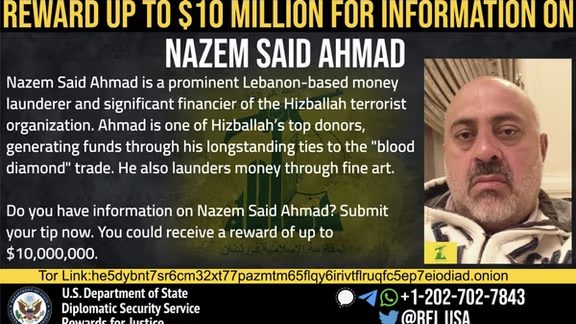
British police said Nagarajan's arrest was related to suspected terrorist financing and money laundering, which is believed to be connected to Ahmad, adding that extradition proceedings had begun. Ahmad himself remains at large.
“The individuals involved in this network used shell companies and fraudulent schemes to disguise Nazem Said Ahmad’s role in financial transactions,” said Under Secretary of the Treasury for Terrorism and Financial Intelligence Brian E. Nelson.
The investigation "speaks to the unwavering commitment of the US and UK governments to prevent art and diamond markets from becoming a haven of illicit financial activity," said Tae Johnson, acting director of US Immigration and Customs Enforcement, whose investigative arm probes sanctions violations.
Prosecutors said Ahmad in 2021 directly negotiated the sale of artwork with a New York-based artist, whom he instructed not to mention his name. Six paintings by the artist valued at nearly $200,000 were then exported to a Lebanese company used by Ahmad, prosecutors said.
In total, entities tied to Ahmad engaged in more than $440 million in financial transactions in violation of sanctions, including importing $207 million worth of goods to the United States and exporting $234 million worth of mostly diamonds and artwork, prosecutors said.
The Treasury's action imposed sanctions on dozens of people and entities in Lebanon, the United Arab Emirates, South Africa, Angola, Cote d’Ivoire, the Democratic Republic of the Congo, Belgium, the United Kingdom and Hong Kong, and warned that Ahmad directs a global network that takes advantage of the permissive nature of the global diamond, precious gems and art market.
Earlier on Tuesday, Britain also sanctioned Ahmad over suspicions he was financing Hezbollah, which is backed by Iran. The British government said Ahmad has an extensive art collection in the UK and does business with several UK-based artists, galleries and auction houses.
With reporting by Reuters
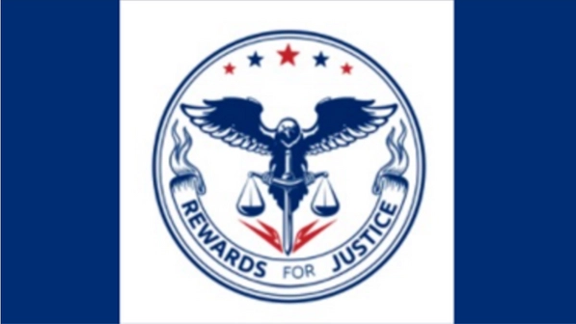
The United States says it has set a reward of up to $15 million for receiving information on the illicit financial network of Iran's Revolutionary Guard (IRGC).
The "Reward for Justice" program affiliated with the US State Department tweeted Saturday that anyone who has information on the IRGC’s financial network can win the reward.
“The IRGC and its branch, the IRGC Qods-Force, conduct and support terrorist activities across the world,” reads the tweet.
It also added that the IRGC used numerous financial mechanisms to fund its activities, including front companies and other entities that help it bypass US and international sanctions.
The Biden administration has already issued dozens of sanction designations on companies and individuals affiliated with the Revolutionary Guard in several countries.
The program has called on people with any information on such activities to share it via WhatsApp, Telegram, or Signal to win a reward.
The United States designated the IRGC as a global terrorist organization in 2019. It has carried out multiple cyber-attacks and threats to the lives of Iranians abroad, including staff at Iran International based in the UK.
The European Parliament overwhelmingly passed a resolution on January 19 calling on the EU and member states to designate the IRGC, however, several states including Germany fear designation will close the window of diplomacy regarding Iran's nuclear program may be closed.
Designating the IRGC as a terrorist group in Europe would mean that it would become a criminal offence to belong to the group, attend its meetings, and carry its logo in public.

The 15-percent discount Iran offers for its exported oil is not a very high percentage, the chairman of oil and gas exporters union Hamid Hosseini says.
He explained that Russia offers large discounts to China and India to offload its oil that used to be exported to Europe and elsewhere before Western sanctions were imposed after the invasion of Ukraine.
Iran is in the same situation, having been sanctioned by the United States in 2018, after former President Donald Trump withdrew from the JCPOA nuclear deal, demanding many concessions from Tehran.
However, Iran has gradually increased oil exports to China since the Biden administration assumed office and began negotiations to reverse Trump’s decision and revive the JCPOA.
Consequently, Iranians wonder why the government is facing a financial crisis and the national currency has lost half of its value since mid-2020 if oil exports to China have increased.
A news website in Tehran asked this week why the budget is in such a bad shape if the government claims ever-increasing oil shipments to China. Hosseini said that in the past two years daily oil exports have increased by 700,000 barrels.
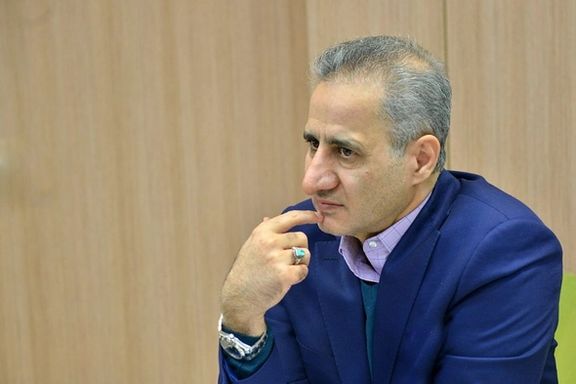
If Iran is shipping a daily average of 850,000 barrels of crude to China at 15 percent discount, it is earning around $65-68 per barrel at current prices. A simple calculation would show that Iran earns around $20 billion annually from oil sales to China.
This is a far cry from $100 billion a year it was earning around 2010, when oil was trading well above $100 a barrel, there was also no discount, and Iran was exporting more than 2.2 million barrels per day, compared to today’s less than one million barrels.
Another factor is that $100 billion in 2010 equals at least $135 billion in 2022 dollars, and global inflation has remained high in 2023.
Iran also ships oil to Venezuela and Syria, but there it hardly earns any money as the relationship is more political and the oil shipments more of a foreign aid scheme.
Therefore, after the United States imposed sanctions in 2018 and reduced Iran’s oil exports, revenues are now less than one-sixth of a decade ago.
Other factors also exist. Different Iranian politicians and officials have pointed out that to repatriate the funds from oil exports, Tehran must use middlemen to circumvent US banking sanctions imposed on third parties, and the amount it actually receives is 15-40 percent less. This adds to the loss incurred by the 15-percent price discount.
Not only oil export revenues are woefully in adequate for Iran’s oil-dependent government and economy, but the energy sector itself is suffering from years of neglect in terms of necessary investments, to the tune of more than $200 billion.
Hosseini expressed hope that with the recent agreement with Saudi Arabia to restore diplomatic relations, perhaps in the future Riyadh would invest in Iran’s oil and gas sector.
Government-controlled media and some officials have also raised expectations that trade can increase with Saudi Arabia in the coming months and perhaps Riyadh would make investments.
However, any foreign investment first needs lifting of US sanctions and for now there is no prospect for Iran reaching a new nuclear agreement with the United States.
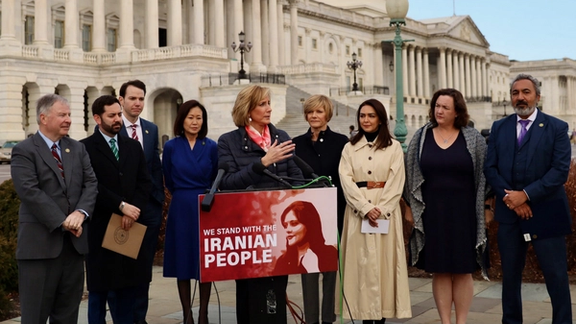
US Republican lawmaker Claudia Tenney has released a comprehensive report on the activities of Iran’s Revolutionary Guards, calling on US allies to designate the IRGC as a terrorist group.
Representative Tenney (Rep-NY) released the reportaccompanied by a bi-partisan resolution on Thursday, detailing the IRGC’s “terrorist activities around the world” and urging Washington’s partners and allies to join the United States in labeling the body as a terrorist organization.
Several groups, including the Jewish Institute for National Security of America, United Against Nuclear Iran, and Foundation for Defense of Democracies, contributed to the 20-page report.
Former US officials, namely former Secretary of State Mike Pompeo, former Deputy National Security Advisor Victoria Coates and former Special Representative for Iran Elliott Abrams, also shared their views and experiences about the IRGC in the report.
“Combatting the IRGC is one of the most urgent national security agenda items today,” said Congresswoman Tenney. “Congress is united in opposing the IRGC’s terror campaign. This designation will increase pressure and send a clear message to the Islamic Republic that its terror campaigns must stop,” she noted.
Tenney’s bipartisan resolution specifically urges the European Union to expeditiously designate the IRGC as a terrorist organization under the European Union’s Common Position 931.
The former US envoy on Iran, Abrams, said in the report: “The IRGC is a global threat that requires a global response. If the IRGC can run free in Europe and Asia it can threaten Americans and our allies, move more money and weapons, and build its strength. We need to press every friendly nation to close the gaps and loopholes that allow the IRGC to survive and thrive as a danger to all of us—and as the main oppressor of the Iranian people.”
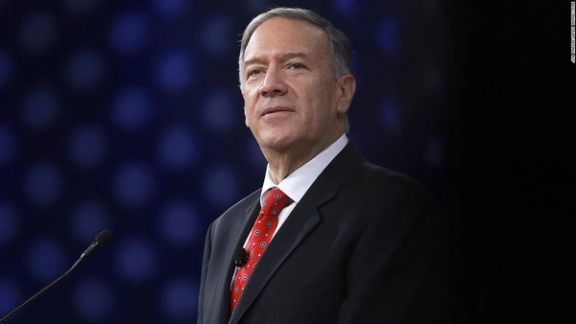
Pompeo, a vocal critic of Iran, said: “Iran’s Islamic Revolutionary Guard Corps is a militant terrorist organization that answers only to Supreme Leader Khamenei, who uses the IRGC to spread terror and mayhem in the name of his theocratic regime."
The report breaks down the threats into domestic, as it crushes voices of dissent in the dictatorship, and regional and global threats.
The comprehensive report lists Middle East states where the militia is carrying out its operations, funding other affiliated leaders and groups in internal struggles or civil wars.
“The IRGC funds belligerents that support the Iranian regime and promote similar schools of extremist religious thought,” the report stated, enumerating the group’s activities in Iraq, Syria, Yemen, and Lebanon, as well as Gaza, Judea, and Samaria – which encompasses the entire West Bank.
By attacking dissidents directly or working through proxies to fuel terrorism, the threats go far beyond the Middle East, acknowledged the authors who went on to list some of the terrorist acts by the IRGC, including the attack on the Asociación Mutual Israelita Argentina (AMIA) Jewish Community Center in Buenos Aires in July 1994, assassinations at Mykonos Restaurant in Germany in September 1992, and plotting to assassinate former National Security Advisor John Bolton in August 2022.
The US lawmaker’s report also points to the Islamic Republic’s supply of weapons for the Russian invasion of Ukraine as another global threat posed by the IRGC. “Russia and Iran announced a $1 billion deal to build a factory in Russia to produce up to 6,000 Iranian-designed drones to use against Ukraine in Russia’s war of aggression,” the report claimed.
The international community must unite against the threat, wrote Michael Makovsky, the CEO of the Jewish Institute for National Security of America (JINSA).
“Today, the IRGC is the most dangerous terrorist group on the planet, with the history, capability, and intention to conduct attacks across six continents,” he said.